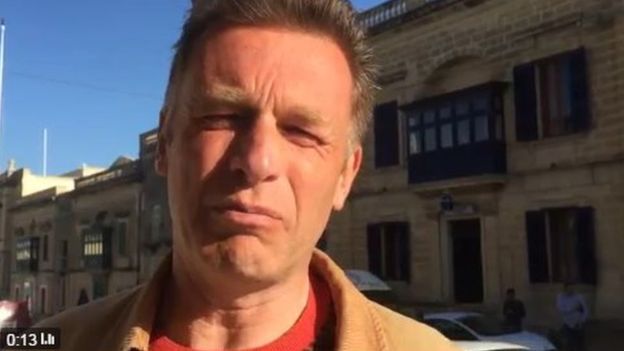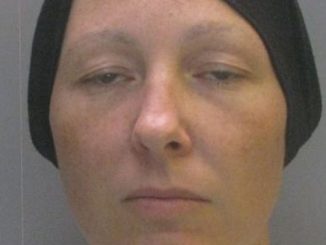
TV presenter Chris Packham has said he has been cleared of assault as he filmed a documentary on illegal bird trapping on the island of Gozo.
Packham, 55, appeared in a Maltese court on Thursday following an incident on the Mediterranean island.
He was filming on the roadside when two men began “shoving” him and his crew, according to his agent.
The campaigner, who is critical of bird-hunting in Malta, was filming an independent programme.
He tweeted at 10:00 BST on Thursday: “NOT GUILTY! And wait until you see our evidence…” before posting a picture of a disc with the title “video footage”.
Packham earlier posted a video saying he had been charged with “using force against any person, with an intent to insult, annoy or hurt them”.
Packham’s agent said that he and his team were shouted at and shoved by two men who drove up to them during filming for a documentary called Malta: Massacre on Migration.
“Whilst Chris and the team stood back, the police joined them,” the agent said.
“Instead of intervening on behalf of the innocent parties, the police immediately took the side of the aggressors and manhandled Chris and other members of the team off the site.”
Packham said that, just hours before the incident, he had called police after seeing what he thought was a cage full of birds, including what he believed to be some protected species.
The presenter, from Marchwood in Southampton, tweeted alongside his video: “Malta! You point out suspected criminals to the police … and you end up in court!”
Packham has long argued that Maltese authorities have failed to prevent large-scale illegal shooting of migratory birds by hunters.
It remains a controversial issue in the country, where bird-hunting is seen as part of Malta’s tradition for many locals.
European Union restrictions on the hunting of birds make two exceptions for Malta – allowing people to hunt turtle doves and quail in the spring, under strict regulations.
But conservationists say the hunting season is abused by some through the illegal shooting of other protected species.
Source: bbc.co.uk






Be the first to comment